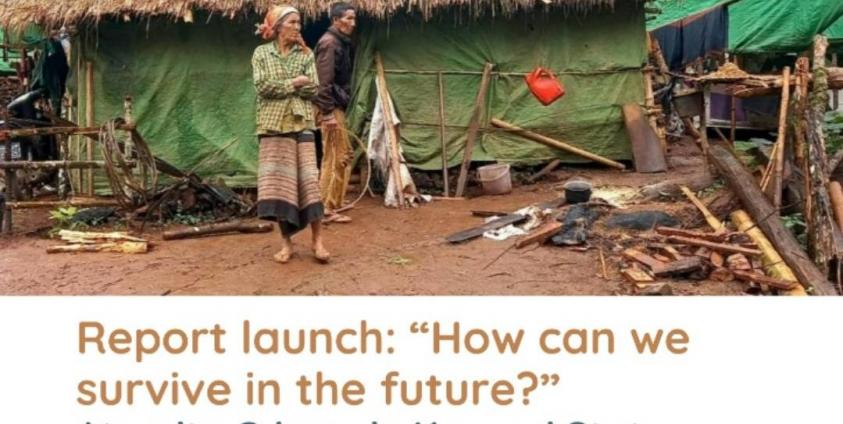On February 7, Karenni civil society organizations released a report on human rights violations occurring in Karenni (Kayah state) after the military coup.
U Banya the director of the Karenni Human Rights Group (KHRG) reported, “ The violation of human rights unleashed after the military coup is unprecedented In Karenni history . Demoso and Hpruso townships are now only military are left there as all the people have fled, leaving behind ghost towns. In the city of Loikaw, except for the urban area, most people are living as refugees. From May 2021 to December 2022, according to our findings, more than 1,100 houses were destroyed and burned.”
U Banyar, said that the report was jointly compiled by four Karenni civil society organizations, in order to expose the human rights violations happening in Karenni state to the international community, and find legal ways to deal with them in the future.
The report, titled “HOW CAN WE SURVIVE IN THE FUTURE?”: ATROCITY CRIMES IN KARENNI STATE”, covers the November 24, 2021 massacres in Moso and in Yaeyo villages outside Loikaw. Six villagers were arrested, killed by the soldiers and and stuffed into a toilet pit.
U Banyar added that there were nearly 40 cases where only the bones were visible and the identity of the residents unknown, and more than 20 cases where residents were arrested, killed and then buried in wells and toilet pits. Their remains were then burnt.
Officials from the Karenni National Women’s Organization (KNWO) and the Kayan Women’s Organization (KYWO) also reported on sexual abuse of women, and the conditions women and children faced during the war.
A KNWO official said, “Women have been sexually assaulted during military conflicts in Karenni for decades, and we have been pointing out sexual violence perpetrated by then Military Council for many years. However the number one reason for not being able to document much of the sexual violence experienced after the 2021 coup is because of security problems hampering our investigation.”
After 2 years of military coup, about 40% of the total population of Karenni State have become internally displaced persons (IDPs), and since the report was conducted and compiled between 2021 and 2022, the number of IDPs is likely to have increased. The Kayan Women’ s Organization (KyWO) said that livelihood is the greatest need and challenge faced by IDPs in Karenni State.
The report was jointly compiled by the Karenni Human Rights Group (KnHRG), Karenni National Women’s Organization (KNWO), Kayan Women’s Organization (KyWO) and the Kayah State Peace Monitoring Network (KSPMN), with technical and financial support from the US Campaign for Burma.
U Banyar, director of KnHRG, said that the report was presented and discussed again on February 7 in Washington, DC, USA.








